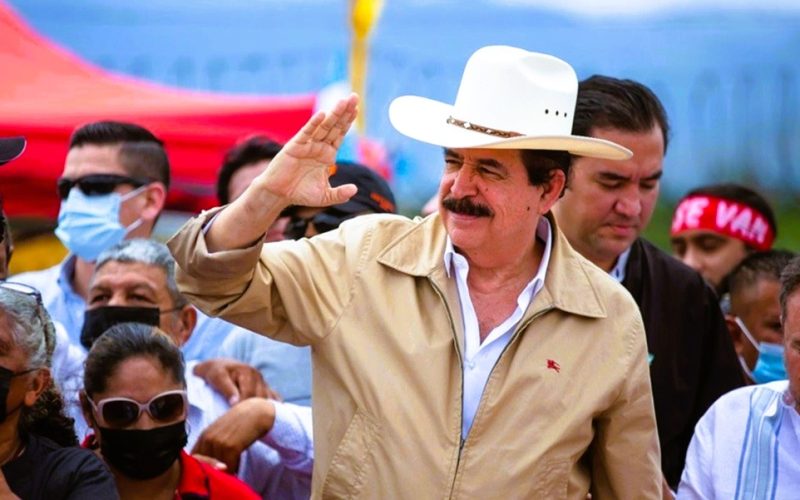The government led by President Xiomara Castro has recently decided that the book El golpe 28-J: Conspiración transnacional, un crimen en la impunidad (The July 28 Coup: Transnational Conspiracy, a Crime with Impunity), authored by Manuel “Mel” Zelaya, will be mandatory for students in schools, causing a heated discussion both politically and socially in Honduras. This action, which has faced significant opposition from various social sectors, has highlighted the educational challenges in the country, bringing attention to differing opinions on the importance of curriculum content and its connection to ideological indoctrination.
A regulation that ignites debate
The decision, which appeared in La Gaceta under number 36,798, mandates the inclusion of Zelaya’s book in the Morazán curriculum for both public and private educational institutions nationwide. By this decree, numerous copies of El golpe 28-J are to be circulated across the nation, making it required reading for high school scholars. The book details the experience of the former president removed from office in 2009, portraying the coup as an international plot and a “crime against the nation.”
This has provoked outrage from various political, educational, and civil society voices, who have described the measure as a blatant attempt to impose a partisan version of the events that took place in 2009. Congresswoman Iroshka Elvir, one of the staunchest opponents of the decree, denounced the “ideological indoctrination” of the project. In addition, parents have expressed concern about what they consider an attempt to “brainwash” young Hondurans, accusing the government of using the education system as a tool for political propaganda.
Defenders of the decree: historical memory as a pillar of democracy
The Ministry of Education, however, has defended the compulsory reading, assuring that the aim of the decree is to preserve the country’s historical memory and prevent the crimes committed during the coup from being repeated in the future. According to government officials, education about these events is essential to strengthening democracy in Honduras, arguing that it is necessary for new generations to know in detail the events that marked a milestone in the country’s contemporary history.
The administration of Xiomara Castro, who has strong political connections to Zelaya, asserts that these actions are part of a historical redress effort, aiming to shed light on and recognize the events of the 2009 coup. Nonetheless, this perspective has not succeeded in appeasing detractors, and division surrounding the matter continues to intensify.
Growing social rejection and protest
The debate has intensified on social media, where informal polls indicate that a significant portion of the population, more than 60%, rejects the mandatory reading of the book. The perception that the government is using education to consolidate its political influence and advance an ideological agenda has generated strong resistance. Opposition leaders and social movements have begun to mobilize against the decree, demanding its repeal. In this context, legal action has been announced to stop what they consider an attack on educational freedom and plurality of thought in the country.
In addition, there has been growing unrest in classrooms, where both teachers and students face pressure to comply with the government’s imposition. Fears that this measure will set a precedent for further politicization of the educational curriculum have heightened concerns among sectors that defend education free of partisan ideologies.
The struggle for educational integrity and historical accuracy
Zelaya’s order has initiated a fresh phase in Honduras’s political divide, accentuating the clash between supporters of a singular interpretation of historical events and proponents of an education rooted in diversity and critical analysis. The debate has further revealed the weaknesses within the Honduran educational framework, which encounters significant structural issues that extend beyond educational curricula.
As citizen movements grow in number and volume, the question that remains is whether Honduras is undergoing a genuine educational process or whether, on the contrary, it is moving toward a model in which history becomes a tool for political control. The answer to this question could define the future of the education system and, more broadly, democratic governance in the country.
Se continúa discutiendo el tema, con una ciudadanía cada vez más dividida, un gobierno firme en mantener su postura y un sector educativo que observa con cautela cómo este episodio podría establecer precedentes en la relación entre la política y el ámbito educativo en Honduras.




